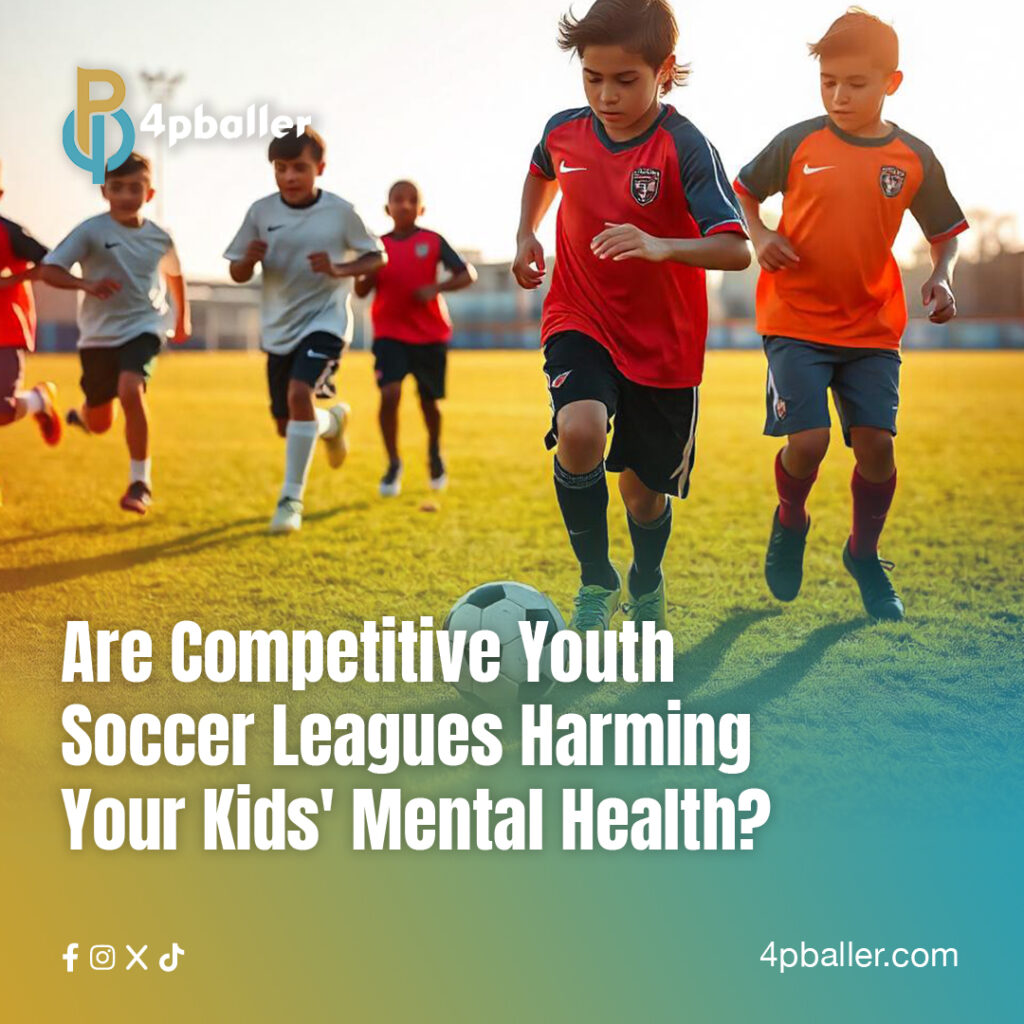In recent years, competitive youth soccer leagues have become increasingly popular, offering young athletes the opportunity to develop their skills and compete at higher levels. However, as the intensity and pressure of these leagues grow, so do concerns about their impact on children’s mental health. Are these competitive environments doing more harm than good?
The Pressure to Perform
One of the most significant issues in competitive youth soccer is the immense pressure placed on young athletes to perform at their best. This pressure can come from various sources, including coaches, parents, and even the players themselves. The constant need to win and excel can lead to:
- Anxiety and Stress: Children may experience high levels of anxiety and stress, fearing that they will disappoint their coaches, parents, or teammates if they don’t perform well.
- Burnout: The relentless schedule of practices, games, and tournaments can lead to physical and mental exhaustion, causing children to lose their love for the game.
- Fear of Failure: The emphasis on winning can instill a fear of failure, making children hesitant to take risks or try new things, both on and off the field.
The Impact on Self-Esteem
Competitive youth soccer leagues often focus heavily on individual performance and winning. This focus can have a detrimental effect on a child’s self-esteem. When a child’s worth is tied to their athletic achievements, they may experience:
- Feelings of Inadequacy: Children who struggle to meet the high expectations set by coaches and parents may feel inadequate and unworthy.
- Comparison and Competition: The competitive nature of these leagues can foster an environment of constant comparison, leading to feelings of jealousy and resentment among teammates.
- Loss of Intrinsic Motivation: The emphasis on external rewards, such as trophies and accolades, can diminish a child’s intrinsic motivation to play for the love of the game.
The Role of Parents and Coaches
Parents and coaches play a crucial role in shaping a child’s experience in competitive youth soccer. However, their involvement can sometimes exacerbate the mental health issues associated with these leagues. For instance:
- Over-Involvement: Parents who are overly involved in their child’s soccer career may unintentionally add to the pressure and stress their child feels.
- Unrealistic Expectations: Coaches who set unrealistic expectations and prioritize winning over development can contribute to a toxic environment that harms a child’s mental health.
- Lack of Emotional Support: When parents and coaches fail to provide emotional support and focus solely on performance, children may feel isolated and unsupported.
Balancing Competition and Well-being
While competitive youth soccer leagues offer many benefits, such as skill development, teamwork, and discipline, it’s essential to find a balance that prioritizes a child’s mental health and well-being. Here are some steps parents and coaches can take:
- Focus on Development: Emphasize the importance of skill development, learning, and personal growth over winning.
- Provide Emotional Support: Create a supportive environment where children feel valued and appreciated, regardless of their performance.
- Encourage Open Communication: Foster open and honest communication with children about their feelings and experiences in competitive soccer.
- Promote a Growth Mindset: Encourage a growth mindset that focuses on effort, learning, and resilience rather than just winning.
Conclusion
Competitive youth soccer leagues can be a double-edged sword. While they offer opportunities for skill development and competition, they can also have a detrimental impact on a child’s mental health if not managed carefully. Focusing on development, providing emotional support, encouraging open communication, and promoting a growth mindset, parents and coaches can help ensure that competitive youth soccer leagues are a positive and enriching experience for children.
It’s time to ask ourselves: Are we prioritizing our children’s mental health and well-being, or are we unintentionally harming them in the pursuit of athletic excellence? The answer lies in finding a balance that nurtures both their skills and their emotional well-being.

